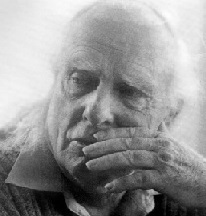Related Research Articles
In logic, the law of non-contradiction (LNC) states that contradictory propositions cannot both be true in the same sense at the same time, e. g. the two propositions "A is B" and "A is not B" are mutually exclusive. Formally this is expressed as the tautology ¬(p ∧ ¬p).
Propositional calculus is a branch of logic. It is also called propositional logic, statement logic, sentential calculus, sentential logic, or sometimes zeroth-order logic. It deals with propositions and argument flow. Compound propositions are formed by connecting propositions by logical connectives. The propositions without logical connectives are called atomic propositions.
"What the Tortoise Said to Achilles", written by Lewis Carroll in 1895 for the philosophical journal Mind, is a brief allegorical dialogue on the foundations of logic. The title alludes to one of Zeno's paradoxes of motion, in which Achilles could never overtake the tortoise in a race. In Carroll's dialogue, the tortoise challenges Achilles to use the force of logic to make him accept the conclusion of a simple deductive argument. Ultimately, Achilles fails, because the clever tortoise leads him into an infinite regression.
In logic, negation, also called the logical complement, is an operation that takes a proposition to another proposition "not ", written , which is interpreted intuitively as being true when is false, and false when is true. Negation is thus a unary (single-argument) logical connective. It may be applied as an operation on notions, propositions, truth values, or semantic values more generally. In classical logic, negation is normally identified with the truth function that takes truth to falsity and vice versa. In intuitionistic logic, according to the Brouwer–Heyting–Kolmogorov interpretation, the negation of a proposition is the proposition whose proofs are the refutations of .
In classical logic, hypothetical syllogism is a valid argument form which is a syllogism having a conditional statement for one or both of its premises.
Modal logic is a type of formal logic primarily developed in the 1960s that extends classical propositional and predicate logic to include operators expressing modality. A modal—a word that expresses a modality—qualifies a statement. For example, the statement "John is happy" might be qualified by saying that John is usually happy, in which case the term "usually" is functioning as a modal. The traditional alethic modalities, or modalities of truth, include possibility, necessity, and impossibility. Other modalities that have been formalized in modal logic include temporal modalities, or modalities of time, deontic modalities, epistemic modalities, or modalities of knowledge and doxastic modalities, or modalities of belief.

Herbert Paul Grice, usually publishing under the name H. P. Grice, H. Paul Grice, or Paul Grice, was a British philosopher of language, whose work on meaning has influenced the philosophical study of semantics. He is known for his theory of implicature.
An implicature is something the speaker suggests or implies with an utterance, even though it is not literally expressed. Implicatures can aid in communicating more efficiently than by explicitly saying everything we want to communicate. This phenomenon is part of pragmatics, a subdiscipline of linguistics. The philosopher H. P. Grice coined the term in 1975. Grice distinguished conversational implicatures, which arise because speakers are expected to respect general rules of conversation, and conventional ones, which are tied to certain words such as "but" or "therefore". Take for example the following exchange:
Inductive reasoning is a method of reasoning in which the premises are viewed as supplying some evidence for the truth of the conclusion; this is in contrast to deductive reasoning. While the conclusion of a deductive argument is certain, the truth of the conclusion of an inductive argument may be probable, based upon the evidence given. Many dictionaries define inductive reasoning as the derivation of general principles from specific observations, though there are many inductive arguments that do not have that form.
In philosophy, a distinction is often made between two different kinds of knowledge: knowledge by acquaintance and knowledge by description. Knowledge by acquaintance is obtained through a direct causal (experience-based) interaction between a person and the object that that person is perceiving.
In social science generally and linguistics specifically, the cooperative principle describes how people achieve effective conversational communication in common social situations—that is, how listeners and speakers act cooperatively and mutually accept one another to be understood in a particular way. As phrased by Paul Grice, who introduced it in his pragmatic theory,
Make your contribution such as is required, at the stage at which it occurs, by the accepted purpose or direction of the talk exchange in which you are engaged.
In propositional logic, transposition is a valid rule of replacement that permits one to switch the antecedent with the consequent of a conditional statement in a logical proof if they are also both negated. It is the inference from the truth of "A implies B" the truth of "Not-B implies not-A", and conversely. It is very closely related to the rule of inference modus tollens. It is the rule that:

Relevance theory is a framework for understanding utterance interpretation first proposed by Dan Sperber and Deirdre Wilson and used within cognitive linguistics and pragmatics. It was originally inspired by the work of H. Paul Grice and developed out of his ideas, but has since become a pragmatic framework in its own right. The seminal book, Relevance, was first published in 1986 and revised in 1995. The impact of their work is seen by the fact that Google Scholar lists over 21,000 citations of this book.
Laurence Robert Horn is an American linguist. He is Professor Emeritus of Linguistics in the Department of Linguistics at Yale University with specialties in pragmatics and semantics. He received his doctorate in 1972 from UCLA and formerly served as Director of Undergraduate Studies, Director of Graduate Studies, and Chair of the Yale Department of Linguistics.
In pragmatics, scalar implicature, or quantity implicature, is an implicature that attributes an implicit meaning beyond the explicit or literal meaning of an utterance, and which suggests that the utterer had a reason for not using a more informative or stronger term on the same scale. The choice of the weaker characterization suggests that, as far as the speaker knows, none of the stronger characterizations in the scale holds. This is commonly seen in the use of 'some' to suggest the meaning 'not all', even though 'some' is logically consistent with 'all'. If Bill says 'I have some of my money in cash', this utterance suggests to a hearer that Bill does not have all his money in cash.
In philosophy, a razor is a principle or rule of thumb that allows one to eliminate unlikely explanations for a phenomenon, or avoid unnecessary actions.
Explicature is a technical term in pragmatics, the branch of linguistics that concerns the meaning given to an utterance by its context. The explicatures of a sentence are what is explicitly said, often supplemented with contextual information. They contrast with implicatures, the information that the speaker conveys without actually stating it.
Logical consequence is a fundamental concept in logic, which describes the relationship between statements that hold true when one statement logically follows from one or more statements. A valid logical argument is one in which the conclusion is entailed by the premises, because the conclusion is the consequence of the premises. The philosophical analysis of logical consequence involves the questions: In what sense does a conclusion follow from its premises? and What does it mean for a conclusion to be a consequence of premises? All of philosophical logic is meant to provide accounts of the nature of logical consequence and the nature of logical truth.

Logic is the systematic study of the forms of inference, the relations that lead to the acceptance of one proposition, the conclusion, on the basis of a set of other propositions, the premises. More broadly, logic is the analysis and appraisal of arguments. The premises may or may not support the conclusion; when they do not, the relation is characterized as a fallacy.
In the Neo-Gricean approach to semantics and pragmatics championed by Yale linguist Laurence Horn, the Q-principle is a reformulation of Paul Grice's maxim of quantity combined with the first two sub-maxims of manner. The Q-principle states: "Say as much as you can ." As such it interacts with the R-principle, which states: "Say no more than you must ."
References
- ↑ Horn, Laurence (1989). A Natural History of Negation. Chicago, IL: The University of Chicago press. pp. 193–203.
- 1 2 "Implicature" in the Stanford Encyclopedia of Philosophy.
- ↑ "The Gricean Model" in the Encyclopedia of Cognitive Science.
| This semantics article is a stub. You can help Wikipedia by expanding it. |
| This pragmatics-related article is a stub. You can help Wikipedia by expanding it. |